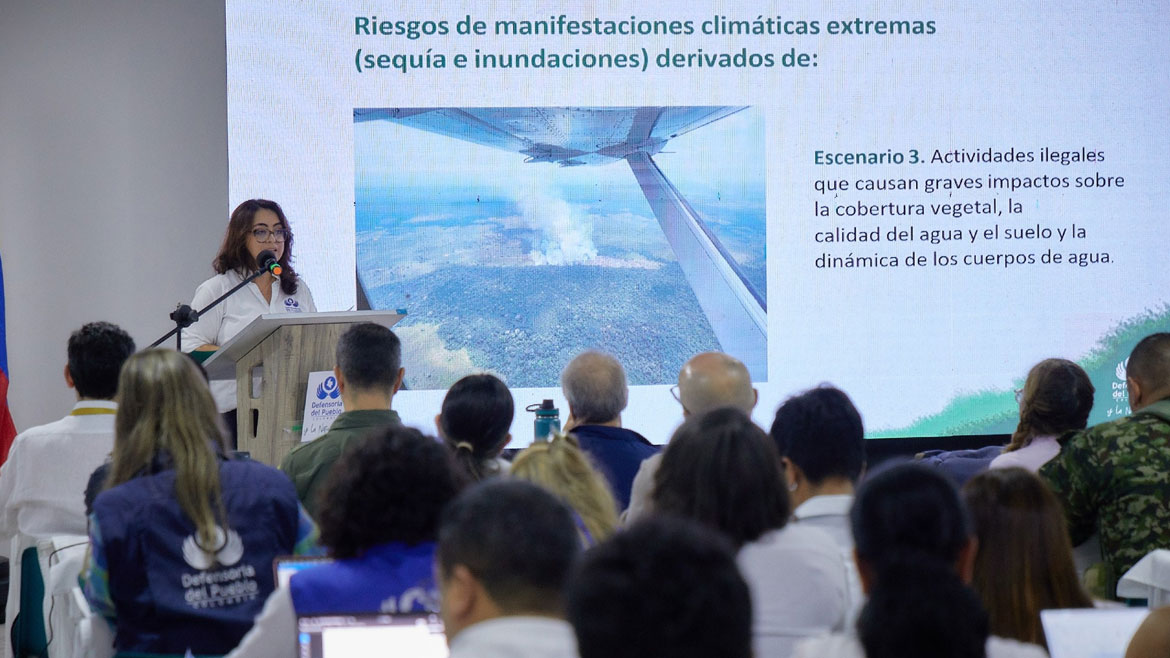
Extreme weather and human activity «accelerating degradation of Amazon» river in Colombia – Colombia News
- Colombia
- mayo 29, 2025
- No Comment
- 83

Colombia’s Ombudsman’s Office urged urgent action in response to the accelerating degradation of life in and around the Amazon river.
According to the Ombudsman’s Office, a recent study found that “the combination of extreme climatic phenomena and the lack of effective regulation of human activities are accelerating the degradation of the Amazon.”
This degradation became particularly clear last year when the worst drought in 120 years dried up 80% of the Amazon river on Colombia’s southern tip, affecting the economy of towns and indigenous communities in the region.
The government’s failure to effectively regulate illegal activity in and around the Amazon river exacerbate the situation in the region, said the Ombudsman’s Office.
Deforestation has claimed 17% of vegetation cover and, if no measures are taken, 2.1 million hectares could be lost by 2040. In addition, intensive agriculture, extensive cattle ranching, illegal mining, illicit crops and uncontrolled urban expansion accelerate the loss of forests and alter the water cycle, which would impact, in that same year, up to 4.3 million hectares.
Ombudsman’s Office
The disastrous impact of unregulated human activity in the Amazon region “are not fortuitous, but the result of institutional omissions, permissiveness in the face of illegal extractive activities, and fragmented and insufficient environmental governance.”
In order to curb a further deterioration of the region’s ecology and economy, Ombudsman Office director Isis Marin urged authorities to take urgent and preventive actions.
“The Amazon cannot wait any longer, we must act forcefully, with justice and with a long-term vision, not doing so would be a renunciation to protect life,” said Marin.
In its report, the Ombudsman’s Office made the following recommendations:
- Strengthen early warning systems and the adaptive capacity of Amazonian ecosystems.
- Coordinate ecological restoration actions between the Ministry of Environment, regional environmental authorities, municipalities and governors, with effective community participation.
- Adopt a climate justice approach, ensuring the protection of indigenous peoples and local communities and guaranteeing their participation in decision-making and access to information, in line with the Escazú Agreement.
- Address the sedimentation of the Amazon riverbed.
- Promote sustainable carbon markets and agricultural and livestock practices that reduce pressure on forests.
- Intensify actions against forest fires, illegal mining and expansion of illicit crops, which are disconnecting the Amazon plain from the Andean forests and fragmenting strategic ecosystems.
- Strengthen cross-border cooperation with Peru, Brazil and Ecuador to address extreme climate phenomena, considering that the impacts are shared and require regional solutions.
We also call on international human rights institutions, particularly those integrated in the Ibero-American Federation of Ombudspersons (FIO), to evaluate the possibility of issuing a joint report on the threats of climate change and deforestation in the Amazon region of our countries. Making this situation visible to the international community is a strategic action to strengthen transboundary environmental cooperation and reinforce compliance with multilateral commitments.
Ombudsman’s Office
Colombia shares responsibility over the Amazon river with neighbors Peru, Brazil and Ecuador.



